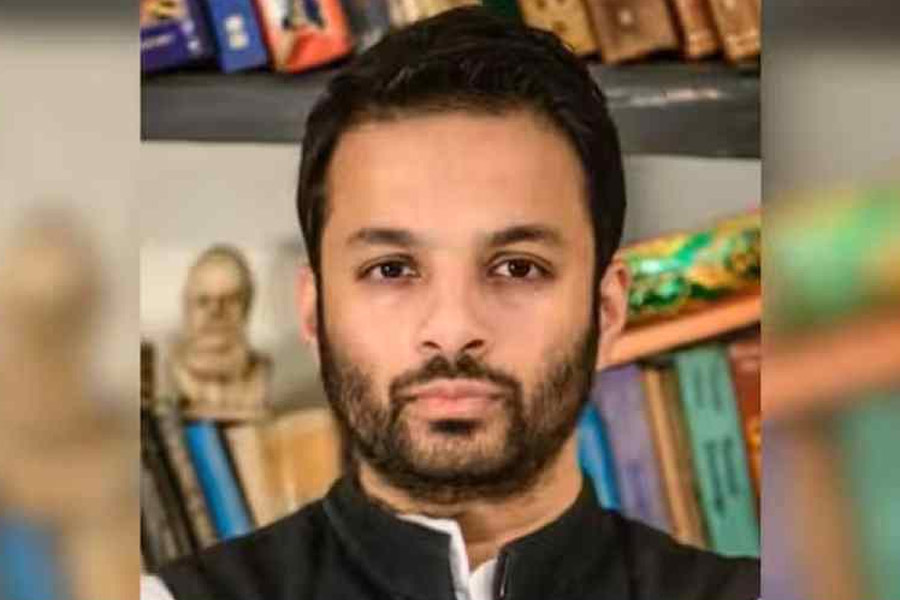The good news for Professor Ali Khan Mahmudabad is that he’s out on interim bail.
The bad news is that the criminal proceedings against him haven’t been quashed or suspended.
Mahmudabad's passport has been confiscated. He also has been barred from writing or speaking about the recent India-Pakistan war or the police proceedings against him.
Worse still, the Supreme Court has ordered the setting up of a three-man special investigation team that will consist of senior police officers from outside Haryana and Delhi.
The job for these three police officers will be to analyse and understand whether there’s any deep inner meaning in the tweets that have landed the Ashoka University political science professor in a tub of very hot water.
Or, as the judges put it in a slightly roundabout way, the three senior police officers must attempt to: “holistically understand the complexity of the phraseology employed and for proper appreciation of some of the expressions used in the two posts.”
The obvious question here is whether three police officers can have a clearer understanding of two tweets than two judges. Will their understanding of the law be enough, or will they need the assistance of language experts?
The court accuses the 42-year-old Mahmudabad of courting cheap publicity. If that wasn’t enough, the court threw in the further charge of what it called ‘dog whistling’. This raises the obvious question: does courting cheap publicity or even ‘dog whistling’ constitute sedition or contravene Section 152 of the Bharatiya Nyaya Sanhita (BNS). Section 152 is a broad provision that effectively replaces the colonial-era sedition law. It criminalises "acts endangering the sovereignty, unity, and integrity of India."
The term dog whistle was added to the Merriam-Webster dictionary in 2017. It has been defined as “an expression or statement that has a secondary meaning intended to be understood only by a particular group of people.”
The two judges – Justice Surya Kant and N. Kotiswar Singh – also took objection to Ashoka University staff who issued statements supporting Mahmudabad. They warned, “If they dare to do anything we’ll pass orders.”
The judges were apparently incensed by the Ashoka University staff statement condemning the “calculated harassment to which Professor Mahmudabad has been subjected: after being arrested early in the morning from his home in New Delhi, he was taken to Sonipat, not allowed access to necessary medication, and driven around for hours without any communication about his whereabouts.”
The judges made it very clear that, for some reason, they have a poor opinion of private universities. “It is not acceptable to us that these some (sic) so-called private universities they open and all kinds of elements they join hands there, and they start making irresponsible statements.” In case anyone had any doubts, the judges warned: “We know how to deal with these people. They are not outside our jurisdiction.” This throws up the very real issue of whether university staff can back a colleague who has been arrested for a brief tweet. Is that a crime?
What exactly did Mahmudabad say that led to a police complaint being filed against him? He praised the optics of bringing in Colonel Sofia Qureshi and Wing Commander Vyomika Singh for the press briefings about the India-Pakistan war but said it would be ‘hypocrisy’ unless the bulldozing of houses and mob lynching stopped.
Possibly it was a far-fetched comparison, but it might be a stretch to describe it as sedition or “acts that endanger the sovereignty, unity and integrity of India,” as outlined in BNS Section 152.
Veteran lawyer Kapil Sibal, representing Mahmudabad, said the posts were "patriotic" and ended with “Jai Hind.” “Just see what he says on the idea of India,” Sibal told the court.
From the remarks passed by Justice Kant, it appears he feels Indians over-stress the right to free speech, and he came down hard on this tendency: “There is a right to free speech etc. Where is the duty? As if the whole country for the last 75 years is only distributing rights and no duty.”
One thing that looks certain is the three-person investigative team will have to brush up on their semantic understanding skills to pinpoint the offensive language in Mahmudabad’s tweet. Renu Bhatia, chairperson of the Haryana State Commission for Women, which filed a police complaint about Mahmudabad’s tweet, was reduced to muttering incoherently for several minutes when cross-questioned about the offending phrases by India Today’s Preeti Chowdhury.
Justice Kant also suggested that Mahmudabad should have used ‘neutral language’ that might not “hurt sentiments.” What exactly constitutes neutral language might also be tough to define precisely.
Mahmudabad, in a statement before his arrest, said his tweets were “misread” and that he had only exercised his right to free speech to promote “peace and harmony” and applaud the Indian armed forces.
Cross over to Madhya Pradesh to witness glaring inconsistencies in the way the law is chasing after some X users and ignoring others. Here, BJP minister Vijay Shah openly called Qureshi, who was one of the three people who answered questions at the government’s press conference, the ‘sister of a terrorist’. The state police were finally forced to file an FIR against him when Madhya Pradesh High Court judge Atul Sreedharan took up the case forcefully. Though the FIR has been filed, no further action has been taken against the minister.
Both cases – one involving an academic’s social media posts, the other a minister’s public remark – are now in the spotlight. They reflect the growing sensitivity around public speech. In a climate where national interest, public expression, and individual rights often intersect, courts are being asked to draw increasingly fine distinctions.










